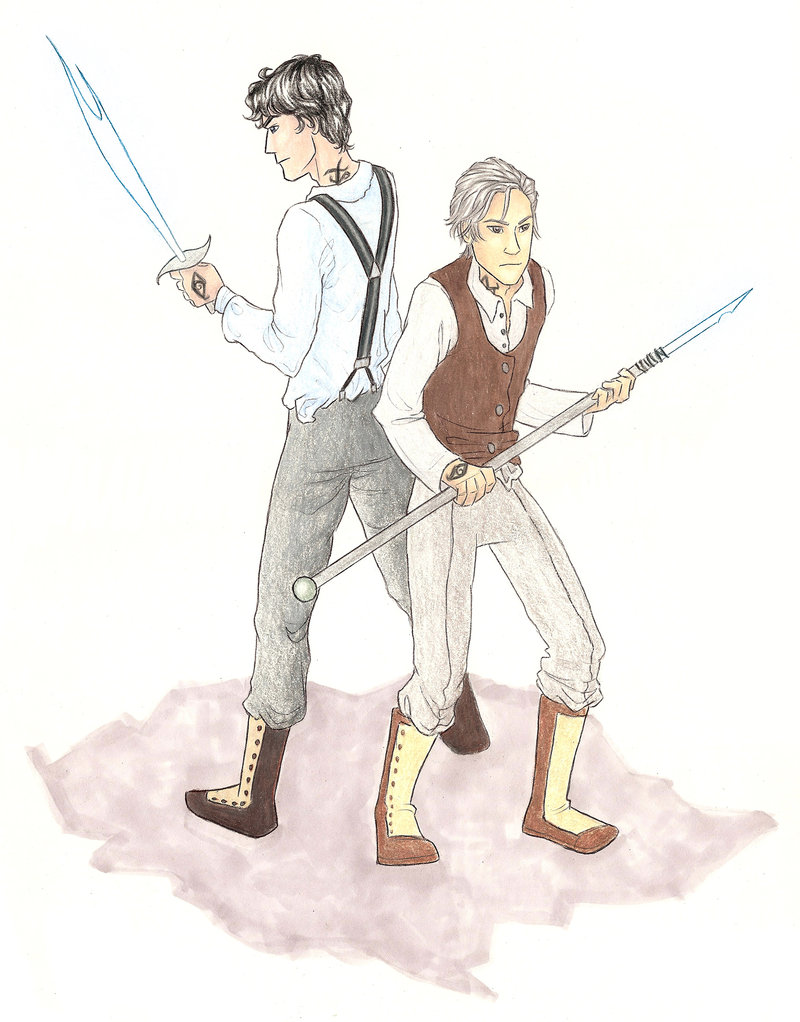
A Queer Calling, an excellent blog run by two celibate women living in partnership together, recently did a little explainer on adelphopoiesis (also known as the brother-making rite) that some people have tried to adapt or reclaim as a blessing for same sex relationships. The Queer Calling women don’t make any assumptions about the goals of other people using the rite, but explain why it doesn’t make sense for their relationship:
Though we do acknowledge that all members of the Church are united as brothers and sisters in Christ, we aren’t inclined to think of our relationship as being first and foremost a form of siblinghood. The brother-making rite was used to make the two participants “brothers,” and we are mutually uncomfortable with applying this kind of language to our situation. A large part of understanding our celibate vocation involves seeing it as a mature, adult commitment. Though we don’t know exactly what these terms meant within the context of adelphopoiesis, to us the term “brothers” or “sisters” suggests that two people are under a common authority in the form of an adult parent. This seems inappropriate for our circumstances in that each of us already has a relationship with our own parents who raised us. One might argue that God could be understood as the parental figure in this instance, but it wouldn’t seem fitting for us to participate in a ceremony for the purpose of uniting us as siblings under God as a common parent when we’re already bonded to each other in this way by virtue of our baptisms.
I was struck by this passage, since, when I’d run across descriptions of adelphopoeisis, it hadn’t occurred to me to think of it in terms of relationship to a parent. To me, making someone your sibling sounds like a way of transmuting a chosen loyalty to an unchosen obligation — a relationship you must honor even if your ardor fades or you become busy. Marriage is one subset of this kind of relationship, but tends to be oriented toward procreation, eros, or romantic affection in a way that platonic friendships are not.
It is true that Christians consider ourselves to all be brothers and sisters in Christ, but we still tend to have a particular obligation and connection to brothers and sisters by blood and adoption. To me, it seems like adelphopoeisis isn’t necessarily infantilizing, any more than a relationship with a natural born sibling constantly serves as a reminder of your parents. There seems to be a hunger for some (more elevated) way of expressing what common parlance calls “bros before hos” — a platonic commitment to a friend that is as serious, if not more so, as one made to a lover.
In Cassandra Clare’s Shadowhunter series (good worldbuilding, frustrating plot), she invents the category of parabatai — warriors who adopt each other as siblings. In the books, the ritual can only be done once, involves a tattoo, and represents a lifelong commitment. The words of the oath are drawn from the story of Ruth and Naomi:
Entreat me not to leave thee,
Or return from following after thee—for whither thou goest, I will go,
And where thou lodgest, I will lodge.
Thy people shall be my people, and thy God my God.
Where thou diest, will I die, and there will I be buried.
The Angel do so to me, and more also, if aught but death part thee and me.
And, from the annals of actual history, rather than urban fantasy, I ran across this fact on Wikipedia when I was reading up on new heraldry rules for same-sex couples:
A rare use of impalement is that where a mystical union is believed to exist between the two parties. Such was the case with King Richard II (1377-1399) who had a particular devotion to the saint King Edward the Confessor. Although the saint lived in the pre-heraldic era, his attributed arms were employed by King Richard in impaling his own royal Arms of Plantagenet, as an outward sign of such a mystical quasi-marriage. The Confessor’s arms were shown in the dexter position of honour.
I’d love to see a name if not a ritual, given to these kinds of relationships, so it is easier to honor and aspire to them.
















